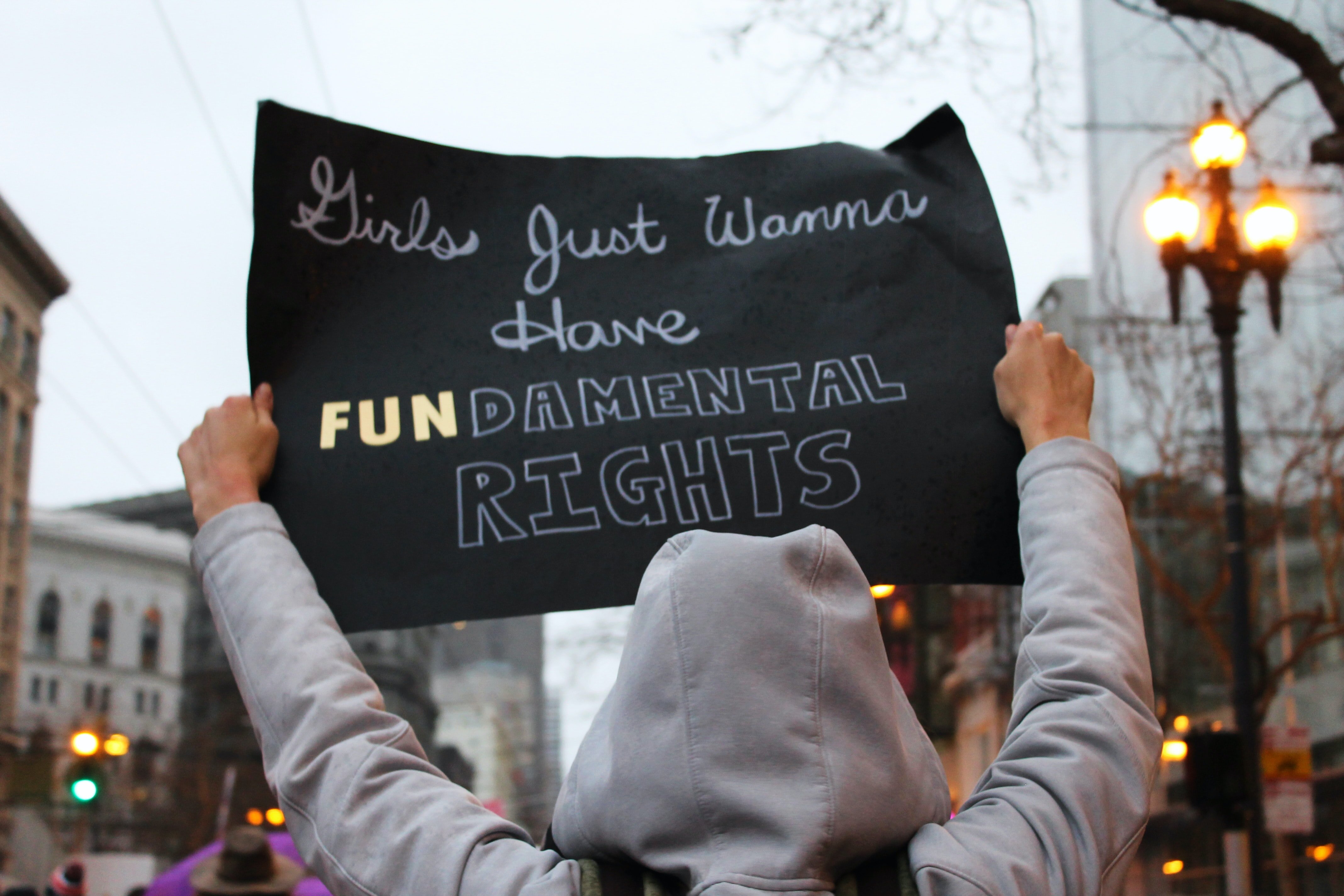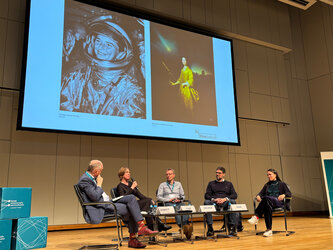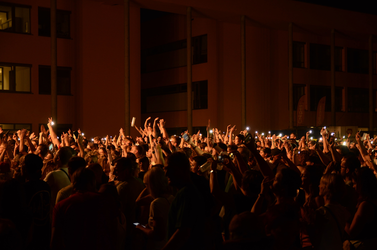
Some days before March 8, the International Women’s Day, I did some research on the history of this special day. After reading some historical facts and figures, I discovered a video on YouTube titled: “International Women's Day- Can You Solve the Riddle? (Mindspace)”.
Since I am an advocate for equal rights, women’s rights and everything that comes along with it, I thought I should be capable of solving the riddle. Besides, a bit of fun for a change would do me some good after working for six hours already that day. That was what I thought when clicking on the video.
In the clip, they asked 24 people as part of an experiment to explore the human mind to solve the same riddle. Their responses is what you see in the video. The riddle was the following:
A father is about to bring his son to a job interview applying for a position at a large stockbrokers company in the city. Just as they arrive at the company’s parking lot, the son’s phone rings. He looks at his father who says ‘Go ahead, answer it’. The caller is the trading company’s CEO who says ‘Good luck son, you’ve got this.’ The son ends the call and once again looks at his father, who is still next to him in their car. How is this possible?
For the next two minutes of the video, you see the people’s reactions and responses. I always saw myself as quite open-minded and free from prejudice. Well, how mistaken I was! Of course, the son has two fathers, I immediately thought. One of the participants gave the same answer, which was revealed to be wrong. I thought some more, but couldn’t solve the riddle. It was humbling to find out that the correct answer is: it’s the son’s mother who is the company’s CEO.
As someone who always thought of herself as unbiased, it was shocking to find out how prejudiced and enshrined in the patriarchal tradition of our society I actually am. I mean, it was obvious to me how far behind Germany is when it comes to the celebrations and the awareness of the International Women’s Day, compared to Italy where I lived for a year during my studies. When I lived in Rome, I was surprised in a real positive way, when I found out how important this day is to Italians. My two male flatmates for example spent the whole day with their girlfriends, giving them yellow mimosas (a symbol of the International Women’s Day), taking them out for dinner, taking care of all their wishes and needs that day. Also outside on the street it was obvious that the International Women’s Day is one of the most important events in Italy. There were yellow mimosas everywhere, the shops gave away small gifts to women, men were real gentlemen (even more than usual) and you couldn’t miss that the whole peninsula is celebrating women. It was actually the first time that I realised that the International Women’s Day even existed and how important it is. It also made me recognise how different this day is in Germany. Although it has been in the media more often lately and gets more attention, it is still not as important as it should be!
Did you even know that we are celebrating the 100th anniversary of the International Women’s Day on March 8 this year? I hazard a guess: you read it in the headline, but haven’t seen it advertised in the media so far. It is nothing compared to Valentine’s Day or Mother’s Day, which is disappointing if you ask me.
Do you even know that the origins of that special day can be traced back to 1858? That year women workers from the textile industry demonstrated and went on strike for better pay and more rights. Back then a woman’s wage was only a fracture of what men earned and they had to work more overtime. Since then women continuously had been on strike for better living and working conditions, raging against inequality and discrimination they were facing compared to male workers. This went on until 1909 when 20.000 seamstresses went on strike in New York. Even though a lot of them were imprisoned, the companies had to give in after two months of strike. As a result the 2nd International Socialist Conference on Women, which took place in Copenhagen in 1910, decided to introduce an annual International Women’s Day. Fun fact: the call to action came from a German woman called Clara Zetkin. The majority of the over 100 delegates from 17 countries voted in favour of the proposal. Therefore, the first International Women’s Day was celebrated on March 19, 1911 in Denmark, Germany, Austria, Switzerland and the USA. In the following years, more countries such as France, Sweden, the Netherlands and Russia followed and joined the celebrations.
You might now think “Why are we celebrating 100th anniversary this year, when the first International Women’s Day actually took place in 1911 already?” Remember that the first of these events took place on March 19, but we are currently celebrating International Women’s Day on March 8. There has been one big event that in the end led to the International Women’s Day being moved to March 8, which is the day we are celebrating ever since. On March 8, 1917 women in St. Petersburg, Russia, demonstrated and went on strike. These women were mostly workers from the textile industry, but they called women from other sectors to go on strike as well. In the end there were 90.000 people (women and men alike) out on the street, demonstrating. Only four days after the strikes had started the people’s discontentment found its peak in the February Revolution, which resulted in the Russian Zar being removed and a civilian government being installed instead.
To honour this event the 2nd International Socialist Conference on Women decided to move the celebrations from March 19 to March 8, the starting point of the Russian Revolution. Since than the International Women’s Day has been celebrated on March 8, this year for the 100th time. In 1975, the International Women’s Year, the United Nations even adopted March 8 as International Women’s Day.
When keeping in mind that the initiative to celebrate International Women’s Day came from a German woman, and that Germany was among the first countries to regularly celebrate International Women’s Day back in the 20th century, it is quite astonishing that we are currently far behind in celebrating and honoring this special day compared to other countries. Did you know that in many countries – for example, Afghanistan, Armenia, Azerbaijan, Belarus, Burkina Faso, Cambodia, Cuba, Guinea-Bissau, Eritrea, Kazakhstan, Moldova, Mongolia, Montenegro, Russia, Tajikistan, Turkmenistan, Uganda, Ukraine, Uzbekistan and Vietnam – the International Women’s Day on March 8 is an official holiday or that in China, Nepal, and Madagascar, it is a holiday only for women?
As you can see, it is not only Italy that is ahead of us when it comes to celebrating the International Women’s Day. Even though I was quite astonished by the Italians, I should also add that women are not necessarily treated better or have more rights in Italy. Equality is still miles away. However, the first step is to raise awareness so that future generations are not as biased as me (the video mentioned at the beginning still stings) and I would say the majority of my generation. However, there are now more and more events and initiatives in celebration of the International Women’s Day all over the globe. This is a necessary first step and it’s the right signal in order to raise awareness for equality and women’s rights.
However, we should not only rely on the government, associations, companies or others to tackle this issue and to develop strategies for more equality. As the riddle and the video have shown me, it is up to us to change our perception of society and to broaden our mind-set towards a more open-minded society that includes women and fights for equality. It has also shown me, how much work all of us, (men, women and everyone else) have ahead of us when it comes to these topics.
Let’s start by taking the 100th anniversary of the International Women’s Day on March 8 as a means to celebrate women’s economic, political and social achievement. Let’s also show respect, appreciation and love towards the women in our lives.
Miriam Bleck has contributed her writing skills and international experience to the DIT press office since 2019, having studied in Munich, Mittweida, Salzburg and Rome. She is interested in current developments in economics, politics and society. She is passionate about all things sustainability and energy transition related. On the DIT blog, she writes about current affairs, personal matters and whatever else takes her fancy.










